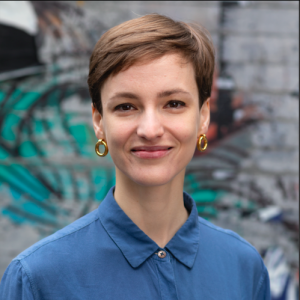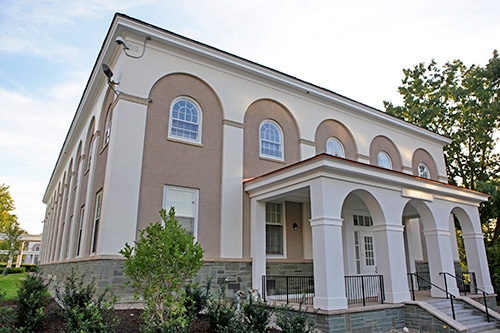
Sarina Kuersteiner
Research interests
My research is motivated by an interest in the intersection of law and culture in the medieval Mediterranean. I have always been inspired by a seemingly simple question: How do people interact with law? In my first book-in-progress, “The Culture of Notaries in Medieval Bologna” (based on my PhD dissertation at Columbia University, 2021), I study this question not from the perspective of legislators, jurists, and theologians, but from that of notaries who were not experts in jurisprudence. Unlike today, medieval notaries in the northwestern Mediterranean penetrated all echelons of society. They wrote contracts, court records, and last wills. They negotiated peace between life-long enemies, authenticated miracles, and recorded acts from which we learn about the employments of concubines. Reading notarial registers in the State Archive of Bologna (Italy), I found that several notaries did a great deal more than write up with some extra legalese the various matters that people paid them to record. Some of them wrote love poems in the guise of legal texts. Others entered liturgical texts or drew images in ways that blur the boundaries between legal and cultural genres and between center and margin. Marginalia in Bolognese acts thus urge us not to equate medieval legal texts with their modern equivalents. Drawing on largely unpublished acts preserved in the State Archive of Bologna, the book examines marginalia in notarial records as windows into how notaries envisioned their roles and the acts they wrote.
My next book project takes risk as an analytical frame to study legal and economic institutions in cross-cultural encounters in the medieval Mediterranean. While reading hundreds of Latin contracts, I noticed that sometimes notaries used non-Latin words, which are absent from contemporary Latin law books. A good example of this is the word resicum, misleadingly translated to English “risk”. This is a word normally found in its Arabic and Judaeo-Arabic forms in letters and documents written by Jewish and Muslim scribes. A first article pertaining to this research, “Whatever God Gives: Arabic and Judaeo-Arabic Rizq and Latin Resicum in Commercial Vocabulary, 1154-1164 CE,” is forthcoming in Speculum. Risk fascinates me as an analytical concept because it allows us to see how medieval traders, notaries, jurists, and scribes talk to each other. Risk divides and connects people as it is an integral part of both loss and profit from trade. But risk also involves assumptions about divine providence and how to access it in this world. Hence, looking at how people connected risk to the sacred can explain divergences in institutional development.
I am currently a fellow in the Wallace Johnson Program for First Book Authors in Early Medieval Legal History and have been awarded a Laura Bassi Scholarship from Editing Press providing editorial support to junior academics.
Teaching interests
The breadth of my research is closely related to and supported through my teaching. Working with undergraduates at Union College, Columbia University, and Barnard College for seven years has given me the opportunity to develop nine courses, including introduction-level lectures on the European Middle Ages, medieval Islam, and religious violence. Among the upper-level seminars I teach is a course on the prehistory of risk and on European state formation which features marginalia in primary sources.
HST 351 – Medieval Minds
HST 246 – From Oracles to Mathematics: The Prehistory of Risk
HST 244 – Medieval Science
HST 141 – Bright Ages: A Medieval World (Europe), 410 CE – 1528 CE
HST 239 – Modern Extremism and the Medieval World
HST 140 & CLS 193 – History Done Digitally: Modern Analysis of the Premodern World
HST 144 – Global Medieval World
FYI (First Year Inquiry) – Religious Violence
HST 190 – Islamic World in the Premodern Era, 600 CE – 1700 CE
Publications
Articles
2026 “Whatever God Gives: Arabic and Judaeo-Arabic Rizq and Latin Resicum in Commercial Vocabulary, 1154-1164 CE.” Forthcoming, Speculum.
2021 “Ad instar quatuor elementorum: Medical and Literary Knowledge in Salatiele’s Ars notarie (1242 CE – 1243 CE).” In “Il Notaio nella società dell’Europa mediterranea (secc. XIV-XIX),” ed. Gemma T. Colesanti, Daniel Piñol, and Eleni Sakellariou, special issue, RiMe (Rivista dell’Istituto di Storia dell’Europa Mediterranea) 9 (2021): 71-108.
Book Chapters
2024 “Almost Sacred? How Bolognese Notaries Shaped the Meaning of Archives, 1289 CE – 1294 CE.” In New Approaches to the Archive in the Middle Ages: Collecting, Curating, Assempling, edited by Emily Savage, 110-129. London: Routledge, 2024.
Reviews
2021 Review of Magdalena Weileder, Spätmittelalterliche Notarsurkunden: Prokuratorien, beglaubigte Abschriften und Delegatenurkunden aus bayerischen und österreichischen Beständen. Köln: Böhlau, 2019. In Sehepunkte 21 (2021), http://www.sehepunkte.de/2021/11/35681.html
Additional media
Exhibitions
Sarina is one of the co-founders of the award-winning public history project Medievalist Toolkit, building bridges between academic outreach, social work, and journalism in relation to contemporary misuses of the premodern past.
